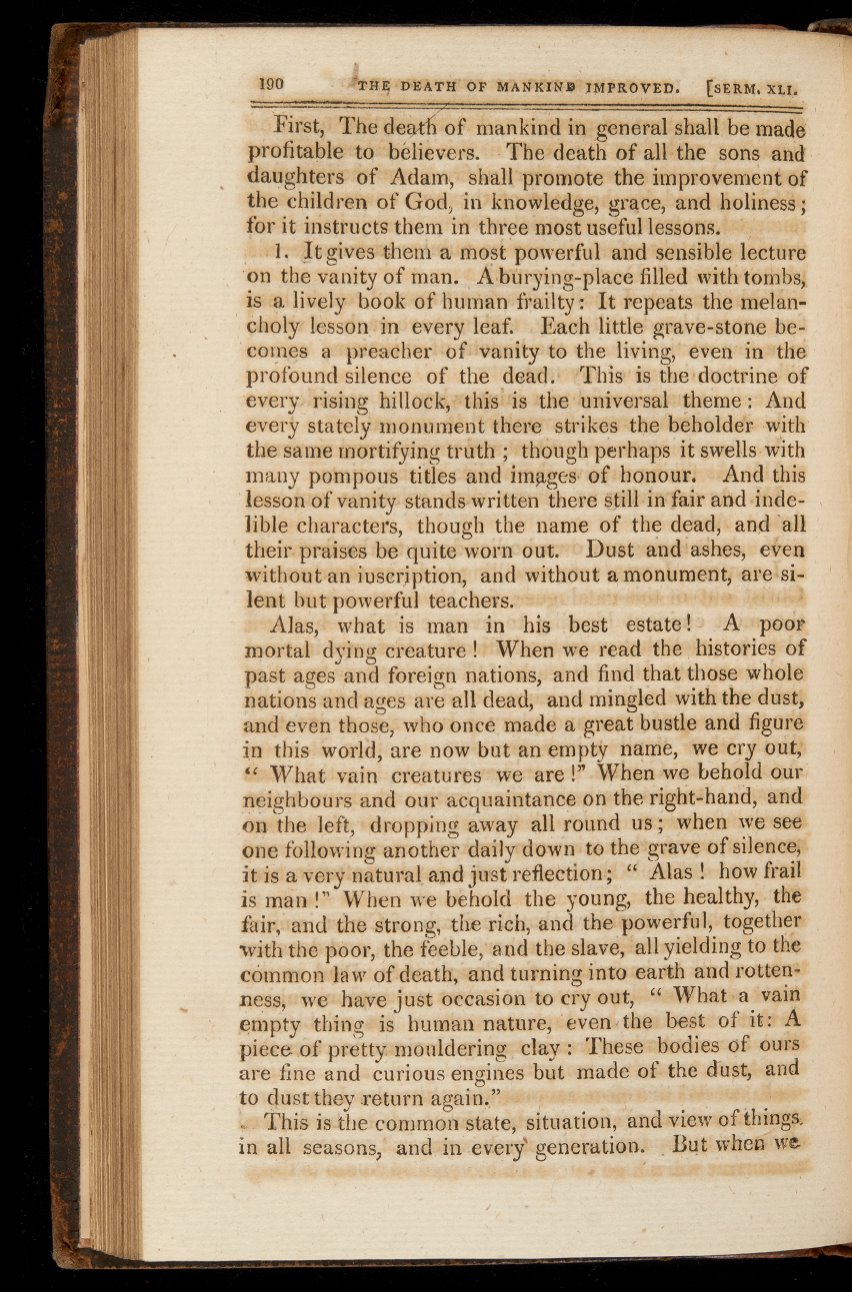

190
'THE
DEATH
OP
MANKIND
IMPROVED.
(SEAM. XLI.
First, The death
of
mankind
in
general
shall be made
profitable
to believers. The
death of
all
the
sons and
daughters
of
Adam, shall
promote the improvement
of
the
children
of
God,
in knowledge,
grace,
and
holiness
;
for
it instructs them
in
three
most
useful lessons.
1.
It
gives
them a most
powerful and sensible
lecture
on the vanity
of
man. A burying-place
filled
with tombs,
is
a
lively
book
of
human
frailty:
It
repeats the
melan-
choly lesson in every
leaf.
Each
little
grave
-stone be-
comes
a
preacher of
vanity
to
the
living, even
in
the
profound
silence
of
the
dead.
This
is
the doctrine
of
every rising
hillock, this
is
the universal theme
:
And
every stately
monument there
strikes the
beholder
with
the
same mortifying
truth
;
though perhaps
it
swells with
many pompous titles and
images
of
honour.
And
this
lesson
ofvanity
stands written there
still in
fair and inde-
lible characters, though the name
of
the
dead, and
'all
their
praises
be
quite
worn out.
Dust
and
ashes,
even
without
an inscription, and
without a
monument,
are
si-
lent
but
powerful teachers.
Alas,
what
is
man in
his
best estate! A
poor
mortal
dying
creature
!
When
we
read
the histories
of
past
ages and foreign
nations, and
find
that
those whole
nations
and
ages
are all
dead,
and
mingled with the dust,
and even those,
who
once made
a great
bustle and
figure
in
this world,
are
now
but
an empty name,
we
cry out,
What
vain
creatures
we
are
!"
When
we
behold
our
neighbours and our acquaintance
on
the right-hand, and
on
the left,
dropping
away all
round
us;
when
we see
one
following
another
daily down
to
the grave
of
silence,
it
is
a
very
natural
and
just
reflection_;
" Alas
!
how frail
is
man
!"
When
we
behold
the
young, the healthy, the
fair,
and the strong, the
rich,
and
the powerful, together
with the poor, the
feeble,
and
the
slave, all
yielding
to
the
cómmon
law
of
death, and
turning
into
earth
and
rotten-
ness,
we
have
just
occasion
to cry
out,
" What
a
vain
empty thing
is
human nature, 'even
rhe
best
of
it:
A
piece.
of pretty
mouldering
clay
:
These
bodies
of
ours
are
fine
and curious
engines
but made of the
dust, and
to
dust
they
return
again.,"
This
is
the common
state,
situation, and
view
of
things
in
all seasons,
and
in
every'
generation. But when
we

















